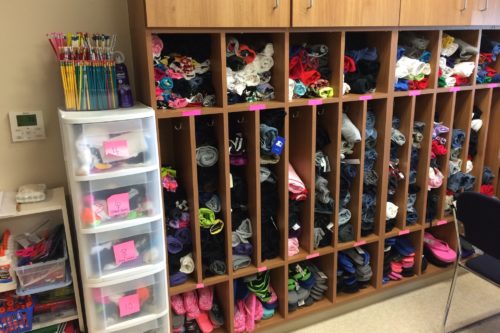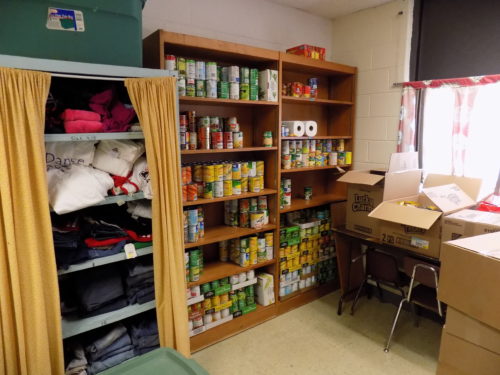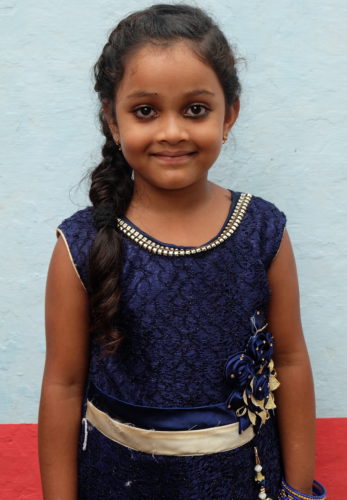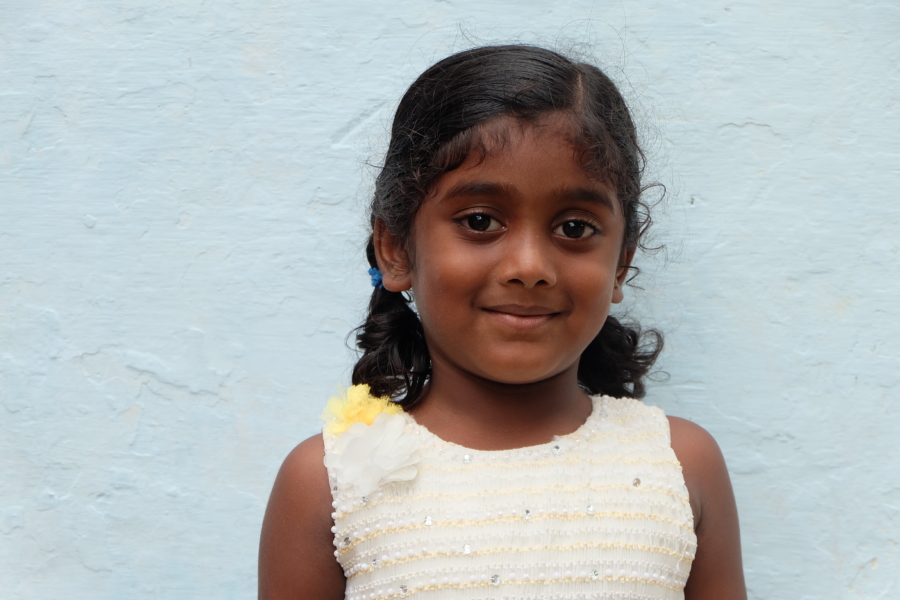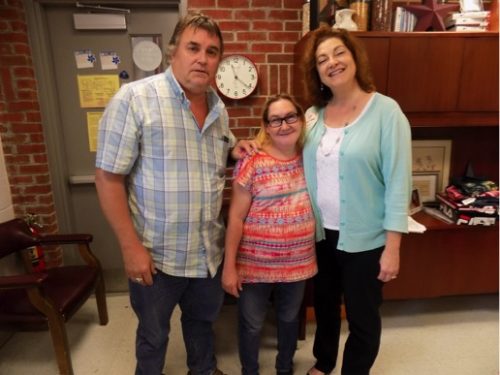After spending two weeks visiting eleven of our affiliated projects in India and Sri Lanka, knowing that the St. Mary’s Girls’ Hostel in Khammam was the last home I would be seeing on my trip left me with a bittersweet feeling. India and Sri Lanka are both full of beauty, diverse cultures, and wonderful people who face extreme hardship every day. Sri Lanka has suffered greatly from natural disasters and decades of civil war; India suffers from overpopulation and dire poverty caused by gender inequality and disparities in income.
Despite how difficult it was to see so many people living in desperate conditions there, I had grown fond of both countries. I learned so much about what our amazing volunteer coordinators are doing to educate our sponsored children, and to give them a better chance at living successful lives.
A home for the disabled
The St. Mary’s Girls’ Hostel is located in South India in the rice-producing state of Telangana. The Church of South India opened the hostel in the small city of Khammam in 1980 to address the poverty that working-class families in the community faced. The thousands of field workers who plant and harvest rice are paid so little that they live in a state of continuous economic struggle. When the rice crops fail, as they often do during and after periods of drought or flooding, the situation for workers and their families becomes even more desperate. Even in the best of times, the rice workers are often unable to afford to send their children to school.
It was great to see Mr. Rao take so much initiative to provide skill training for the girls so that they will have better employment opportunities later in life.
When we arrived at the home, we were greeted by our Volunteer Coordinator, Mr. Rao, who explained to us that St. Mary’s was once a home for the physically disabled, including blind and deaf students. Unlike so much of India and the developing world, the home was built to accommodate people in wheelchairs. The matron of St. Mary’s, who is wheelchair-bound herself, has no difficulty navigating the walkways between the girls’ dorms, the kitchen, and the recreation rooms, thanks to the original design of the home.
As he showed us around the buildings, Mr. Rao told us that not only do the girls go to school every day, but they also are learning to make bracelets, books, and brooms — all of which are sold to the community to generate additional income to support the home and the girls. Additionally, the home offers computer and clothes-making classes and training for older girls and women who do not live there. In total, there are 27 staff members who teach all of the courses offered, which I thought was quite impressive. It was great to see Mr. Rao take so much initiative to provide skill training for the girls so that they will have better employment opportunities later in life.
Always in need of more funds
The home itself is a lovely facility — the grounds are full of lush, green tropical plants, and there is plenty of room for the girls to play. The hallways are covered with large, colorful pictures and posters of the special people, both Indians and foreigners alike, who have helped fund the work of the St. Mary’s Girls’ Hostel over the years — all of which contributed to the bright and festive atmosphere at the home.
Of the 47 girls between the ages of six and nineteen who are living in the home, forty of them are currently sponsored. Mr. Rao said that there is room for additional children, but they don’t currently have funding to enroll more young women. I realized then, one day before I was to return home, that I had heard this from each of our projects in Sri Lanka and India over the past couple of weeks — I was told by each and every one of them that they could reach even more kids with additional funding.
It was hard to hear that there are children missing out on going to school because of money — something we don’t worry about as much in the United States; but instead of focusing on the negative in my last few hours in this unique part of the world, I thought about how grateful I am for our sponsors, who send thousands of children around the globe to school every year, because they believe as much as we at Children Incorporated do that every child deserves an education.
***
HOW DO I SPONSOR A CHILD IN INDIA or SRI LANKA?
You can sponsor a child in India or Sri Lanka in one of three ways: call our office at 1-800-538-5381 and speak with one of our staff members; email us at sponsorship@children-inc.org; or go online to our donation portal, create an account, and search for a child in India or Sri Lanka that is available for sponsorship.

